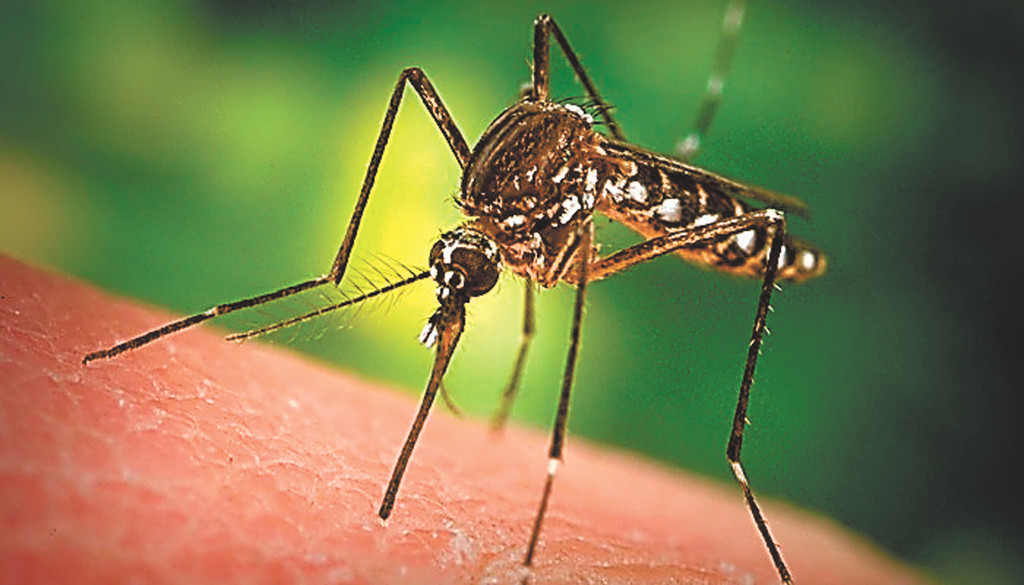What’s with all the mosquitoes?
Increased insect population is just more fallout from Irene
Bees and mosquitoes were everywhere on the South Shore after Irene had passed, and many residents were left scratching their heads — along with their arms and legs — about why there was a sudden influx of the biting and stinging insects.
It turns out it’s just another thing you can blame on Irene.
“The reason that most people are seeing [bees] right now is because a lot of the nests that they lived in got destroyed by the wind,” said Joe DiDominica, co-owner of Dees’ Nursery and Florist in Oceanside. “Whether a tree got knocked over or the wind just whipped their nest apart.”
Bee hives aren’t built to withstand tropical storm-force winds. So the now-homeless bees have nowhere to go.
DiDominica urged residents to not kill the bees, though. “They’ll nest up again,” he said. “Many people don’t realize how important they are. They really are important for about a third of the crops that feed us.”
He said that unless you’re in danger of being stung by a bee, don’t kill them. “And as long as bees aren’t aggravated, they’ll leave you alone,” said DiDominica. Soon enough, they’ll build themselves new nests.
The mosquitoes, however, are fair game.
“There are two types of mosquitoes: there are mosquitoes that nest in standing water and there are also mosquitoes that nest in the ground,” DiDominica explained. “What happens now is that you have mosquito eggs that are hatching out of the ground because they’re wet. And they’re hatching like crazy now.”
To help stop the spread of mosquitoes, residents should empty out any standing pools of water they have. Also, make sure to clean up any debris in your yard. “And mosquitoes will nest in wet leaves,” DiDominica said. “And with all that rain we just had with the wind, you have piles of wet leaves and stuff like that.”
Residents can also purchase safe pesticides they can spray in their yard and larvacide for standing pools of water they can’t empty. Nassau County also plans to increase mosquito spraying in response to the larger numbers.
However, it will still be a few weeks before the mosquitoes are under control, since more mosquitoes now means more mosquitoes that are able to lay eggs, which only take days to hatch.
“Normally you’ll see an abundance of mosquitoes after heavy storms like [Irene],” said DiDominica. “It’s very common. But in this case, we just had so much that it’s just multiplied. And they’re going to lay eggs. So it’s a little bit of a vicious cycle for a few weeks until they’re gotten under control.”

 75.0°,
Partly Cloudy and Breezy
75.0°,
Partly Cloudy and Breezy 




